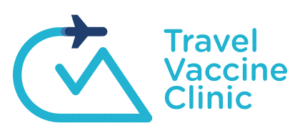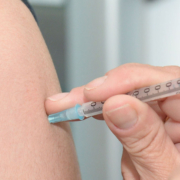The Measles Outbreak
What is the Measles?
Measles is one of the leading killers of children whose deaths could have been prevented by being vaccinated. There have been about 157,700 people who have died from measles in 2011, according to the World Health Organization.
The risks of getting Measles
Measles is very contagious, once you are in contact with someone who is infected. If you are in contact with a traveler who has not been vaccinated, your chances of contracting the infection are heightened. If you or your child has never had the measles and have not been vaccinated, you are at risk of contracting the infection.
Outbreaks occur when travelers bring measles into Canada, they happen in communities where people do not vaccinate their children. In Canada, a large 2011 outbreak in Quebec resulted in 676 confirmed cases within 7 months.
What can I do to prevent Measles?
People over 1 year of age who were born after 1970 should be vaccinated with the measles, mumps, rubella vaccine if they have not already received 2 doses of vaccine or had the disease.
Talk to your travel health care provider if your trip will disrupt your child’s vaccination schedule. Vaccines don’t always promise absolute protection but they do reduce the risk. Talk to your travel health care provider about vaccines before you travel.
What do I do if there is an outbreak?
If you haven’t been immunized and there is an outbreak of the measles you are at risk of getting infected. It is crucial that you speak to a healthcare professional, you might be required to get the measles vaccine within 3 days of being exposed. Dependent on the situation, another option consists of receiving an injection of measles antibodies within 6 days of being exposed to the virus. The antibodies can help prevent the infection or make the symptoms less severe.
What do I do if I am traveling?
It is important you contact a health care professional who specializes in travel vaccines at least 6 weeks before departing the country. It is important to make sure your immunizations are up to date for you and your children.
Vaccines for Prevention of Measles
There are vaccines available to prevent the measles. Vaccines catering to the measles are very safe, free and effective. They are called:
- Trivalent MMR vaccine (measles-mumps-rubella [M-M-R II, Merck & Co., Inc.]), and
- Quadrivalent MMRV vaccine (measles-mumps-rubella-varicella [ProQuad, Merck & Co., Inc.]).
**Some side effects include fever, skin rash, and swollen glands. The side effects will only appear for 12-24 hours after the immunization.
The side effects of the measles vaccine are very mild and will not harm your child. Two doses of MMR vaccine are 97 percent effective against measles and 88 percent effective against mumps. One dose of MMR vaccine is 93 percent effective against measles, 78 percent effective against mumps, and 97 percent effective against rubella.
Other ways to prevent the Measles
- Make sure to wash your hands after sneezing, coughing and before preparing food or eating,
- Avoid contact with anyone who has had the measles and has not had 2 doses of the measles vaccine in the past
- Do not share any drinks, foods or utensils while traveling,
- If you are not able to immunized from the measles you can try immune globulin which is a blood product that contains measles antibodies (this is available to prevent measles disease in people who are exposed and cannot be immunized)






